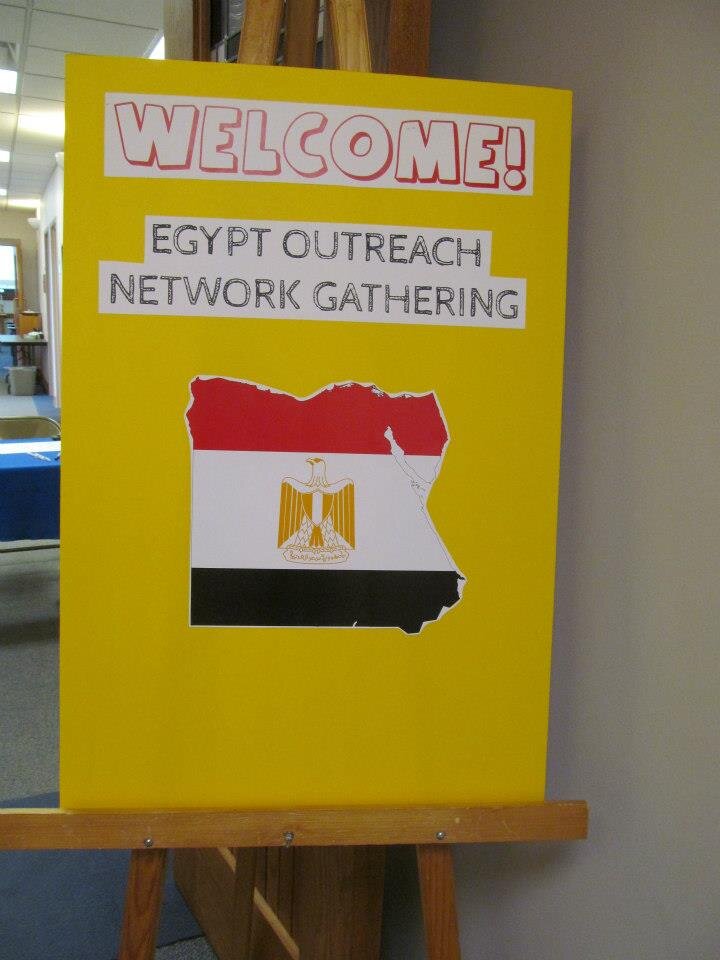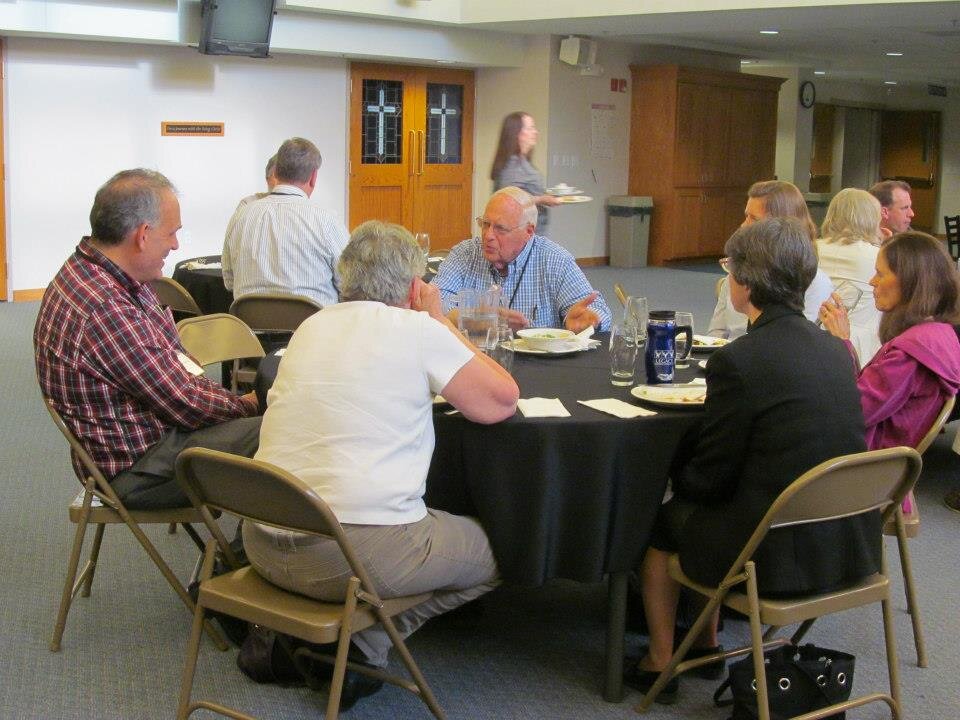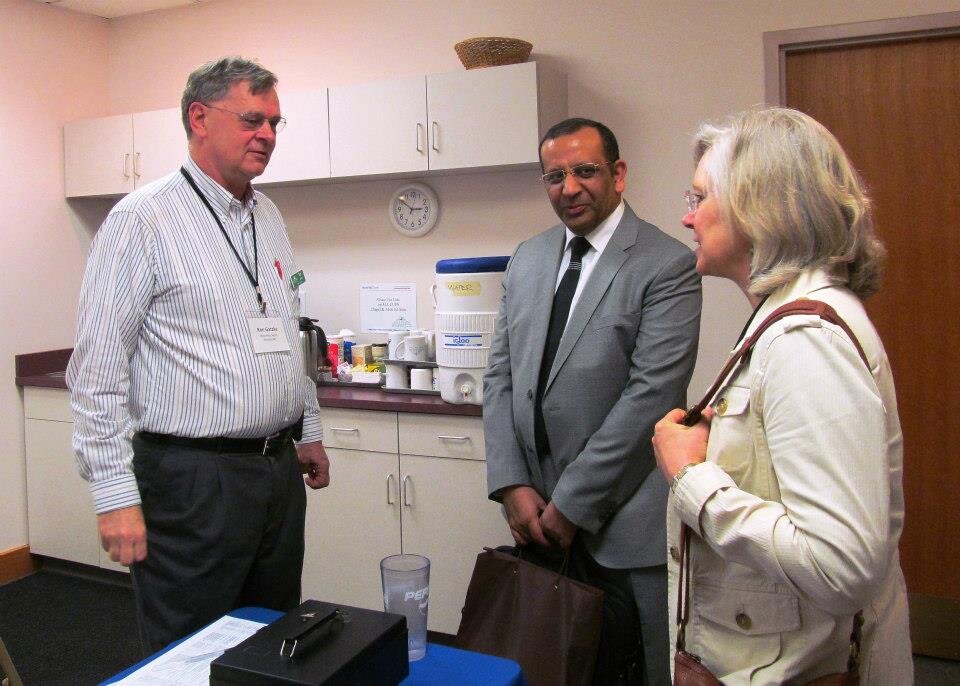Egypt Mission Networks in the United States
INSTALLMENT 14 OF THE HISTORY OF THE OUTREACH FOUNDATION IN EGYPT
by Jeff Ritchie
The Outreach Foundation has been an active participant in several of the PCUSA Mission Networks during the late 1990s and early 2000s. As our commitment to mission in Egypt began to increase, we realized that there was no Egypt Mission Network in the PCUSA as such. To be sure, US Presbyterians, with more than 150 years of mission in Egypt, were still connected with the Church in Egypt through a handful of PCUSA missionaries along with a few advocacy groups focused on specific ministries or mission organizations (see Appendix for a list of some of these). There was no specific group, however, which had a focus on building the capacity of the Egyptian Church for its evangelistic outreach. The Outreach Foundation and Presbyterian Frontier Fellowship thus decided to create one and hoped it eventually would be part of an inclusive, country-wide network in which all those with mission connections in Egypt could share what each other was doing, learn best practices in mission, and pray for God’s work in Egypt.
The first meeting of the new Egypt Outreach Network took place in Atlanta during the 2005 Global Mission Conference co-sponsored by The Outreach Foundation and Frontier Fellowship. The Rev. Nancy Fox, who was at that time one of the Mission Directors at First Presbyterian Church of Colorado Springs, became the Network’s convener. Several of our Egyptian mission partners were present at this conference including one of the plenary speakers, Mr. Ramez Atallah. Ramez, who was to inspire us with his message later that week, told the network participants how much we had encouraged him by our interest in the church in his country.
After this initial gathering, the Egypt Outreach Network met every year between 2007 and 2013. We were hosted by churches in Chicago, Indianapolis, Arcadia, California, Richmond, Virginia, and Omaha, Nebraska. On two occasions we planned our gathering to coincide with PCUSA mission conferences and gatherings. Almost every year we had a representative from Egypt speak in person or by Skype.
After this 8-year run, the Egypt Outreach Network stopped, as participants had other claims on their time and church mission budgets. But the Network more than accomplished the purposes for which it had been created. Not only did the bonds between US and Egyptian friends grow deeper and stronger through these annual meetings, but the various US constituencies within the Egypt Outreach Network got to know much more about each other’s work. Presbyterian Frontier Fellowship, for example, had a relationship with a network of Muslim-background believers worshiping clandestinely. The Egyptian Diaspora we met in the Network usually were involved with the churches where they had been members before emigrating to the US. Still, other groups who came to the Network were focused on outreach to Muslims in the US. It was a rich time of sharing and learning.
Another network in which churches who had a connection with The Outreach Foundation’s work in Egypt participated was the Partners Group of the Kasr El Dobara Evangelical Church in Cairo. This church, a member of the Evangelical Presbyterian Church of Egypt, is the largest Presbyterian Church in the Middle East with over 5,000 members. What has been noteworthy about Kasr El Dobara (KDEC), more than its membership, is its extensive mission work in and beyond Egypt. It supports evangelistic and mercy ministries throughout Egypt which benefit both Presbyterian and non-Presbyterian churches. It sends its own missionaries to various parts of the Arab world and to Arabic-speaking refugees and immigrants in Europe. It participates in global evangelical movements such as the Lausanne Movement. The mission of Kasr El Dobara (KDEC), in short, has been much larger than the ministry carried on within its sanctuary.
To support these missions KDEC has had many global partners, and it has kept its relations with these friends close through an annual gathering in the US and through an annual mission conference at its retreat center in Egypt. Several of the strongest supporters of the Outreach Foundation’s work in Egypt were also equally committed to Kasr El Dobara, especially to its global mission work. They would build their visits to Egypt around the date of the KDEC mission conference and attend the annual KDEC Partners meeting in the US.
The various mission networks related to Egypt have taken time and energy to nurture. They have worked well when the relational “glue” that bound the participants to each other has been strong. Personnel changes, budgetary challenges, and other issues in both US and Egyptian churches have at times changed the dynamics and effectiveness of these networks. But there is no doubt that they have played a long-term role in keeping mission relationships and mission support in Egypt strong.
This chapter concludes with a question. Given the importance of networks for long-term mission relationships and involvement, will the Evangelical Theological Seminary in Cairo and the Evangelical Presbyterian Church of Egypt take the initiative to form and maintain future networks in which The Outreach Foundation and other US friends participate? We hope so.
Appendix: Egypt Networks with Presbyterian Connections
In an invitation to the 2008 Egypt Outreach Network meeting, convener Nancy Fox listed the following Egypt connections within the PCUSA: an emerging partnership between the Synod of Southern California and Hawaii and the Synod of the Nile; individuals and churches connected with the “Care With Love Program” of PCUSA mission co-worker Magda Iskander; Joining Hands Against Hunger Egypt Network; Hands Along the Nile Development Services, a support group for the Presbyterian-founded Coptic Evangelical Organization for Social Services (CEOSS); and the Egypt Outreach Network.



